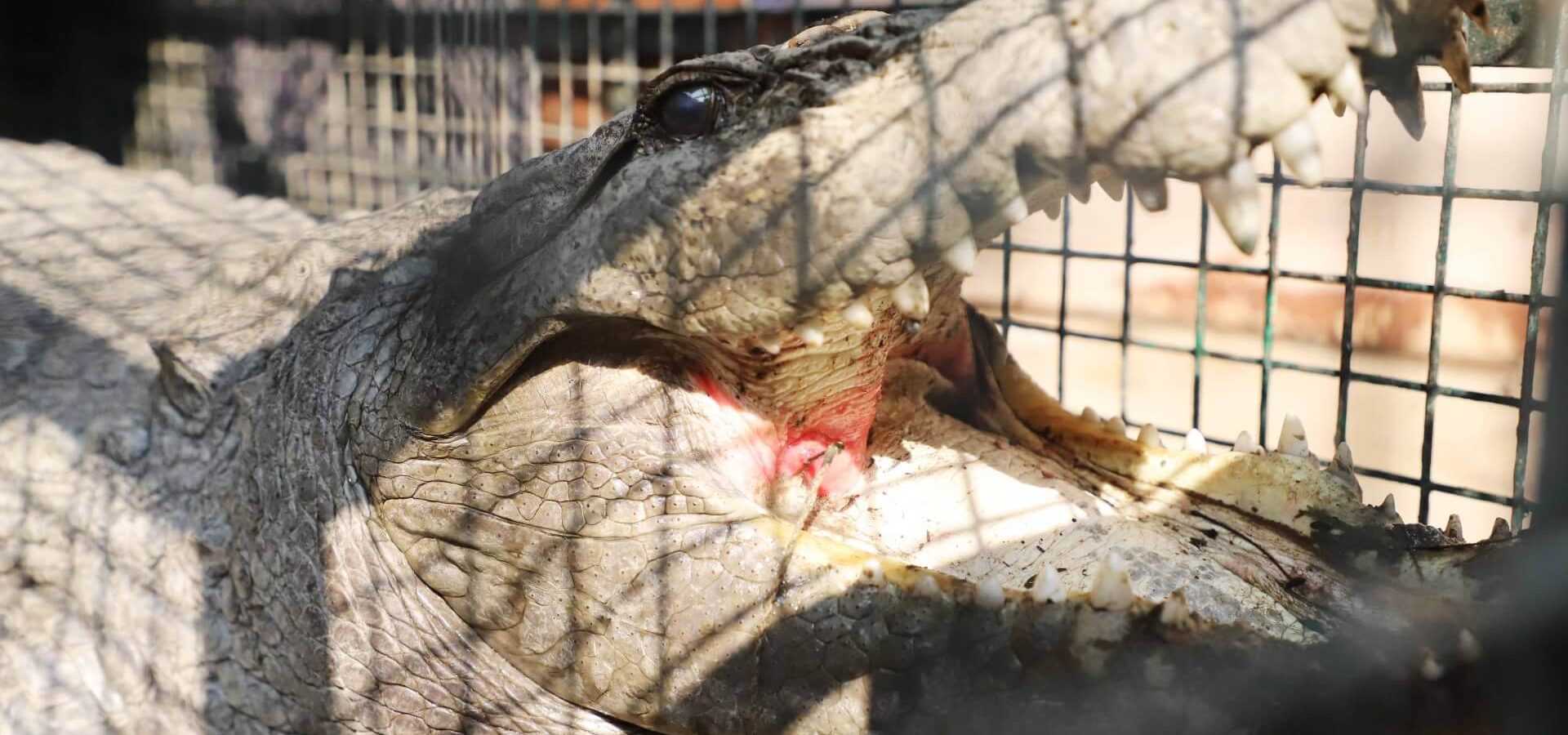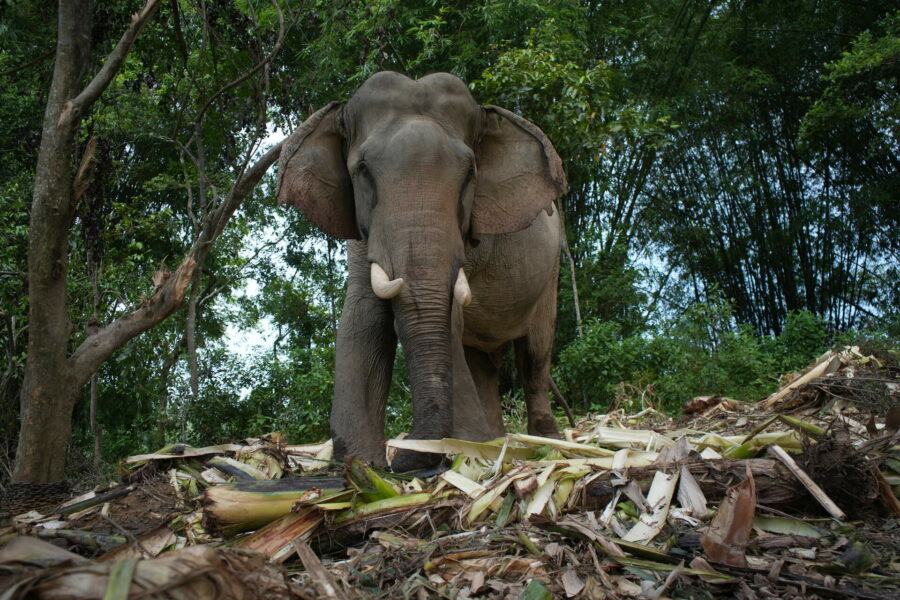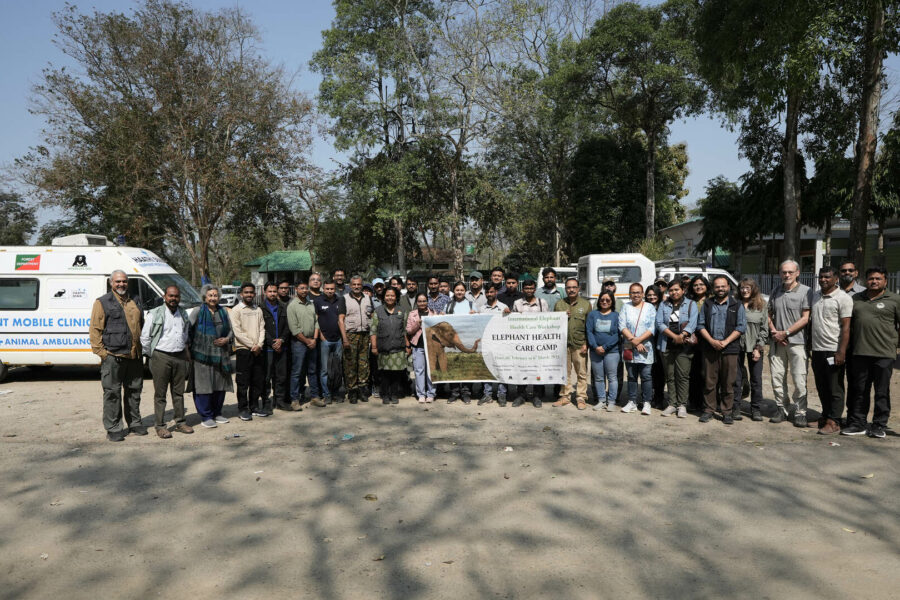An emergency call in the late hours of the evening sprung the Wildlife SOS Rapid Response Unit operating out of Agra into immediate action, when the Jasrana Forest Division, Firozabad, Uttar Pradesh, informed us about an eight-foot long mugger crocodile caught in a perilous situation. The crocodile was spotted by local residents frequenting the nearby pond in the village over the past week. The crocodile became an unsuspecting victim of a deadly fish-hook which was embedded in its mouth and was in immense pain and discomfort.
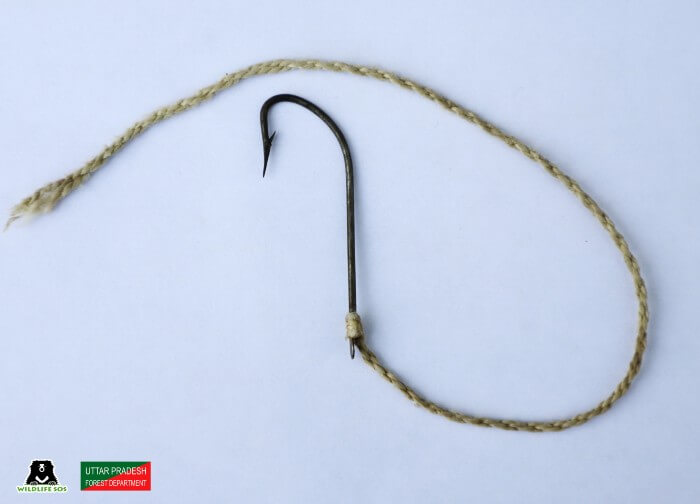
Since Wildlife SOS and the Uttar Pradesh Forest Department conduct regular capacity-building workshops with local communities, the residents of Eka village, in Firozabad reached out to the Forest Department and informed them about the condition of the crocodile.
The rescue became particularly challenging as the team reached the location at night and the still waters of the pond made it very difficult to spot the reptile in distress. The Forest Department officials accompanied the Wildlife SOS rescue team to the location for assistance, while keeping in mind the norms of social distancing.
It was initially decided that a trap cage would be set up to safely extract the crocodile out of the pond, but as the water was shallow and still, it took the team ample time to understand the location of the crocodile. Ultimately, once spotted, our team carefully approached it and used safety nets to bring it to the shore.

The crocodile was bleeding from the mouth and was rushed to the Wildlife SOS Hospital in Agra for intensive treatment. The fish-hook was surgically removed in an operation and was found to be 3 cm long, jabbed stubbornly in the upper jaw of the crocodile, making it impossible for it to feed, putting it at a risk of starvation and infection as well. Had the rescue team not reached the crocodile’s location on time, the situation would have worsen.
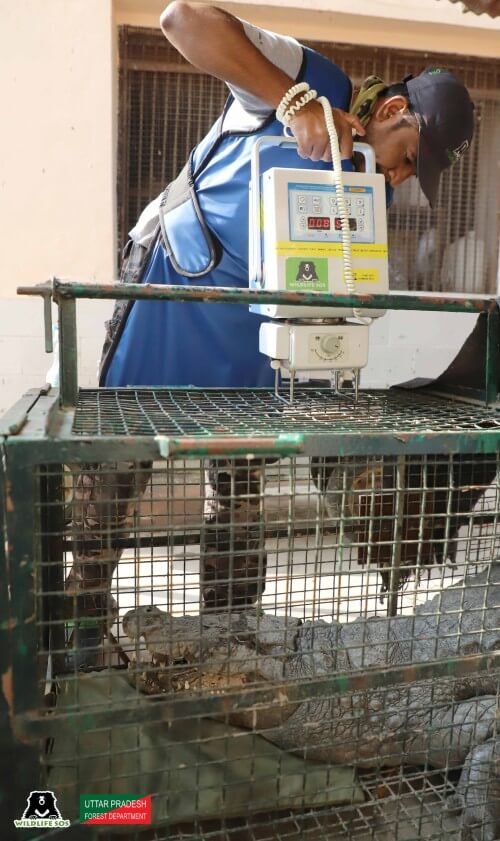
The crocodile was placed under post-operative care, constantly administered with pain management medication and laser therapy sessions which would expedite healing of the damaged tissues. After a few days of observation to assess improvement and once deemed fit to be released back into its natural habitat by our veterinary team, it was released in the Chambal river.
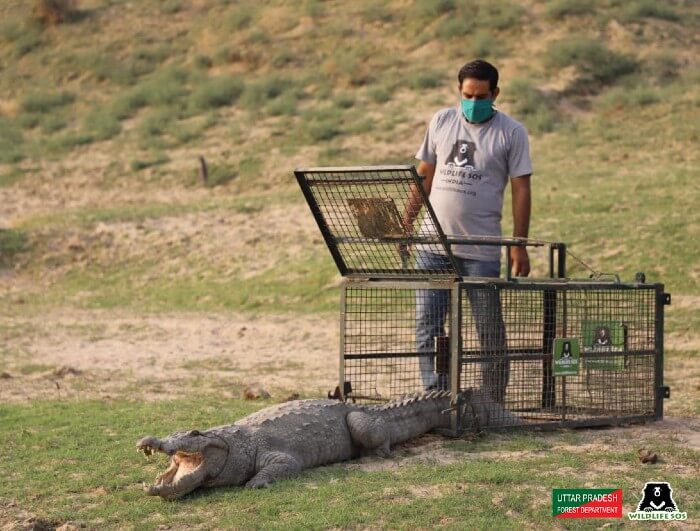
At one point, Mugger crocodiles used to be widespread throughout the subcontinent but as time passed, their populations have dwindled due to habitat destruction, hunting for fashion industry, loss of prey base, human encroachment and increasing situations of conflict. The Mugger crocodile, (Crocodylus Palustris) also called the Marsh crocodile, is native to the Indian subcontinent, Sri Lanka, Burma, Pakistan and some parts of Iran. It is most commonly found in freshwater environments such as rivers, lakes, hill streams, village ponds and human-made reservoirs. This species is listed as ‘Vulnerable’ on the IUCN Red List and is protected under Schedule I of the Wildlife Protection Act 1972.
We are grateful to the Jasrana Forest Division, Uttar Pradesh Forest Department for their assistance in the challenging rescue, which allowed help to reach the injured crocodile in a timely manner! Wildlife SOS appreciates the alertness of the residents of the village for reaching out to the Forest Department to inform them about the condition of the injured crocodile.

